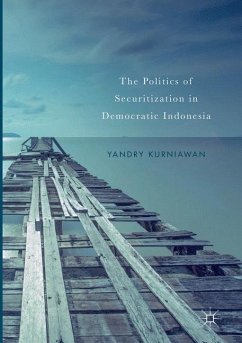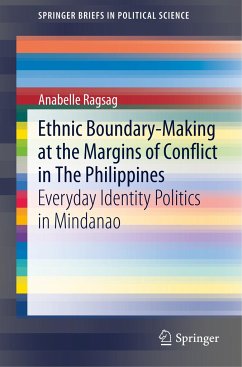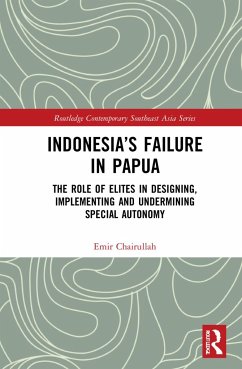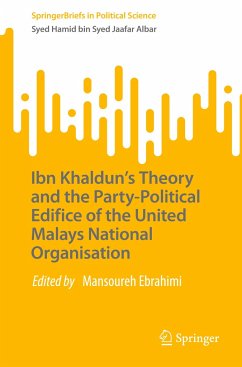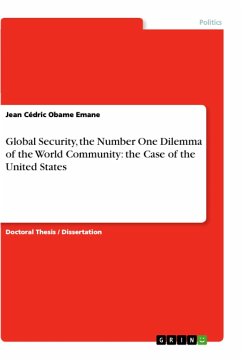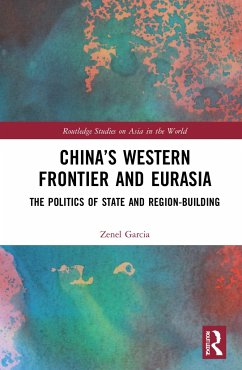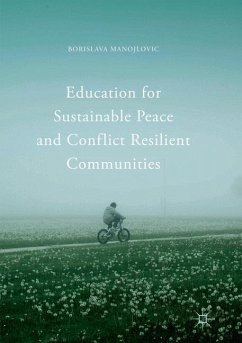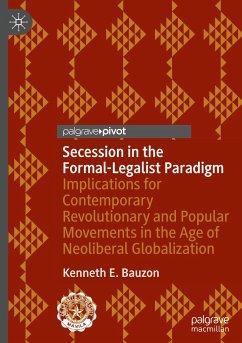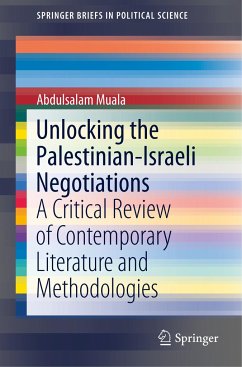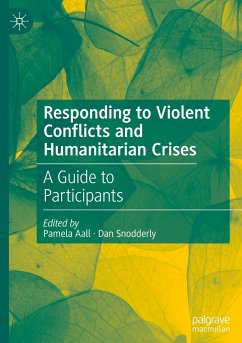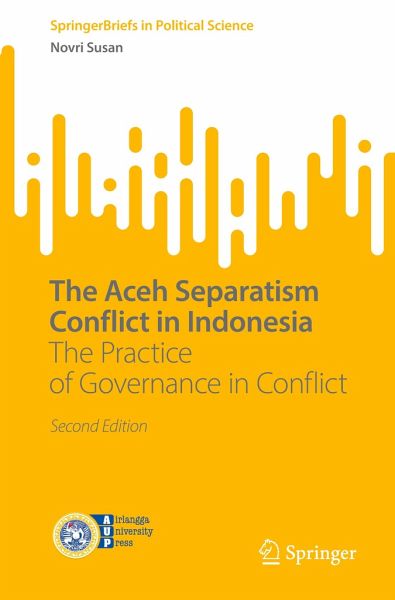
The Aceh Separatism Conflict in Indonesia
The Practice of Governance in Conflict
Versandkostenfrei!
Versandfertig in 6-10 Tagen
38,99 €
inkl. MwSt.

PAYBACK Punkte
19 °P sammeln!
This book is the first to analyse the practice of governance to resolve conflict in the case of Aceh in Indonesia. Combining theoretical discourse on conflict, democracy, and governance, it draws from original field research on the separatist conflict, utilizing a social constructivist approach in collating observations and interviews with political elites from both the Government of Indonesia and the Aceh Independent Movement (GAM). The conflict was an intractable one in which thousand civilians were killed between 1976 and 2006. The author zooms into the 2003 and 2007 period, against the bro...
This book is the first to analyse the practice of governance to resolve conflict in the case of Aceh in Indonesia. Combining theoretical discourse on conflict, democracy, and governance, it draws from original field research on the separatist conflict, utilizing a social constructivist approach in collating observations and interviews with political elites from both the Government of Indonesia and the Aceh Independent Movement (GAM). The conflict was an intractable one in which thousand civilians were killed between 1976 and 2006. The author zooms into the 2003 and 2007 period, against the broader context of the political landscape of Indonesia under the Suharto regime. In doing so, the book tackles the challenges presented by intrastate conflicts relating to ethno-religiosity, land use, and separatism. It unpacks the Indonesian political system's shift from an authoritarian regime to a democratic one, and demarcates the prevalence of state violence in managing conflicts, as exemplified in the Aceh separatism conflict. Relevent to political scientists and scholars in peace, conflict and development studies, this co-published book presents novel sociological insights into Indonesia's historical, and contemporary, political landscape.



